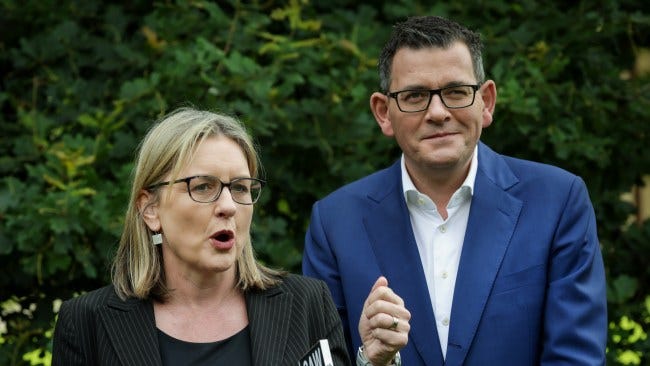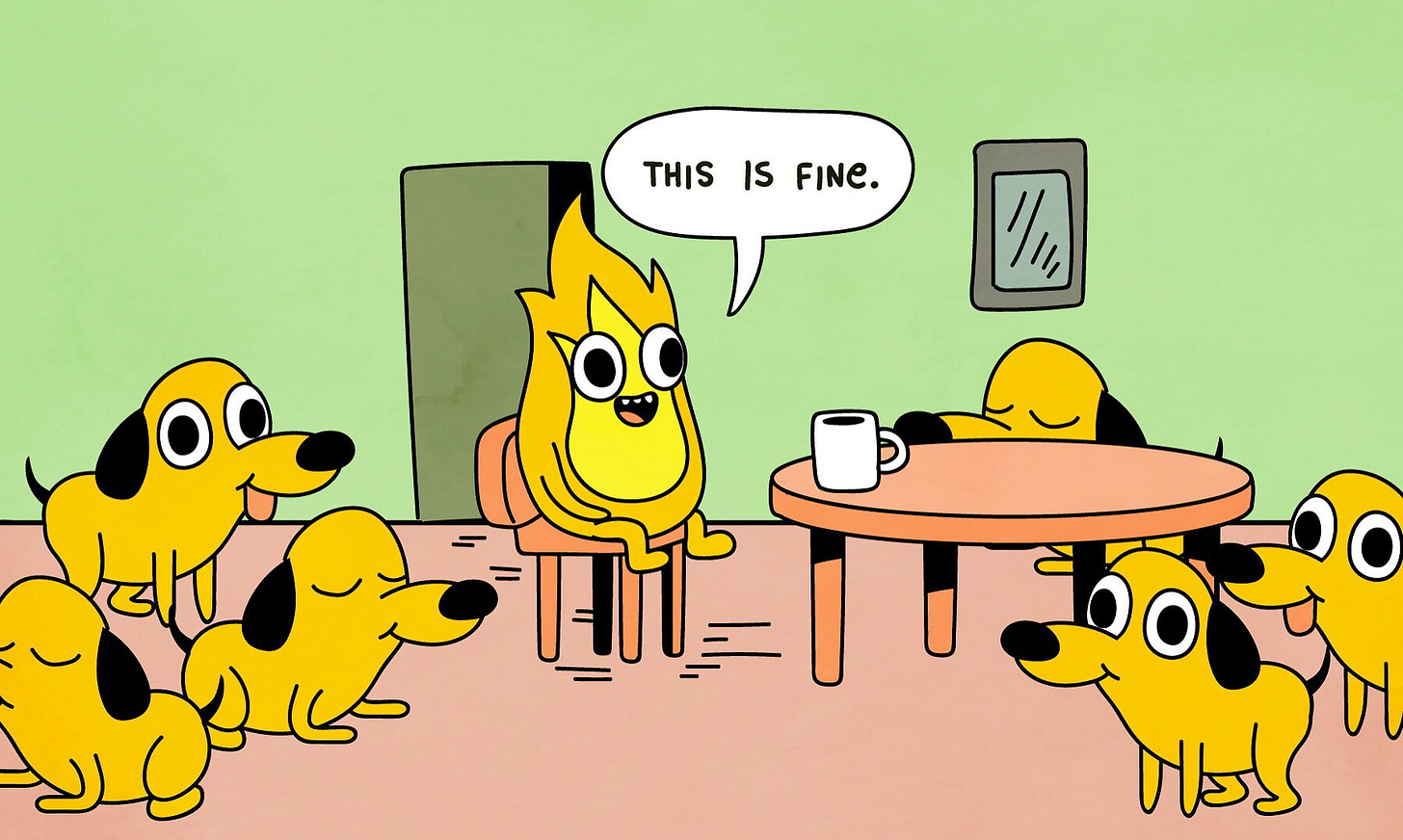I fixed Australia's broken voting system. In one evening. So what the fuck are our politicians actually doing?
Closed-List Proportional Representation WITHOUT preferential voting is what we need. Yes, it's a mouthful, and despite the name it — thankfully — has fuck-all to do with DEI.
It’s election night. One party is down, 47 to 53. You’re rapped, the party you’re supporting this year (because you’re more of a swing voter now, you adventitious lil’ munchkin) is winning, it echoes the sentiments of a majority of what you’re hearing from people around you, from varied sources across the media landscape.
The votes are finished being counted. Democracy is functioning. This feels right.
Only, days later, the party with 47% votes won, because the sack-of-shit Greens decided to throw their vote behind the losing party because they cut some shady under-the-table deal.
This feels fucking awful.
And it’s a feeling that Australians nationwide know too well.
It’s a feeling that independents know probably more than any other, and it feeds into the current two-party system, in which we get a choice of “Who is the least shit?”
Why does this keep happening?
Let’s look at what we currently have
We currently have FPTP (First Past the Post) + preferential voting.
This system is becoming increasingly awful.
FPTP (First Past the Post) is precisely what it sounds like: The most votes win. But that speaks to the word of the moment: Merit! We love merit!
But if we love merit and it’s supposed to be good, how does that situation I just described end up happening time and time a-fucking-gain?
Well, that would be because of preferential voting, (also known as ranked-choice voting).
In the Australian context, within the preferential voting system (used for the House of Representatives), voters rank candidates in order of preference (1, 2, 3, etc.).
Suppose no candidate gets more than 50% of the vote (a majority). In that case, the votes are counted in rounds, eliminating the least popular candidates and redistributing their votes based on voters' second preferences. This process continues until one candidate has a majority of votes. We’re all familiar with this.
For example, a bottom-feeding party like The Greens can help a major party like Labor by directing preferences toward them. Here’s how it works:
In an Australian election, if a voter’s first-choice candidate is from a smaller party (like The Greens), and that candidate is eliminated, their vote can be transferred to their second-choice candidate. If a significant portion of The Greens voters prefer Labor over Liberal, then their preferences help Labor get closer to securing a majority.
This leads to Labor, you know, hypothetically making under-the-table deals because they’re a pit of snakes. They (The Greens) know they’ll lose, but they’ll still get the policies they want pushed forward, and thus, in turn, get what they want no matter what.
Parasitic! How fun!
Preferential voting presents an illusion of choice, particularly if a voter hasn’t done the research into which minor party prefers which major party.
It relies — in part — on you being a little bit dumb. In fact, it hopes that you’re dumb.
Because of preferential voting, It’s in the best interests of the major parties that you remain ignorant. This isn’t tin-foil hat nonsense, nor is it a matter of opinion.
Here are some examples to illustrate my point:
Voting for a Marijuana Party because you believe in drug reform but know that Labor is a pack of compulsive liars? Well, stiff shit, your vote is going to Labour because their preference is Labor, and you sure as hell know that the party for choof isn’t getting elected. What are you, a pothead?
(This was me a few years ago, and I didn’t even smoke marijuana, I just wanted my dad to have access to it to help with his Parkinson’s. Well, that didn’t turn out, did it? I was well-intentioned, but a fool all the same.)
How about voting for a deceptively named Cannabis Party which is actually geared towards cracking down further on drug reform? Congratulations, you’ve just given your vote to Liberal assholes who would sooner hotbox their own rectal gases in a broom closet in Kirribilli given the opportunity, than loosen the noose.
These are two hypothetical examples, but they’re accurate ones and they aren’t so far from precedent, my harsh — accurate — character judgements aside (not that I’m done doing that).
So let’s break down *takes breath* Closed-List Proportional Representation sans Preferential Voting.
The disadvantage to this is that there’s less personal and individual accountability when mistakes are made, but since when the fuck did politicians in Australia truly take responsibility for anything?
Admittedly, to separate itself from any ideas of DEI there would need to be a rebrand, but here’s the gist:
Closed List means that there are no candidate names on the ballot.
Yes, it becomes less of a popularity contest which, let’s face it, would be fantastic. Sure, voters will associate parties with certain individuals, but it’s party-based.
So, even someone with the demonstrated personality of a parking fine like Peter Dutton (I’m sure he’s actually good fun, but I just haven’t seen this from him yet), has a chance of winning.
Or even someone with the raw, unbridled glibness of Anthony Albanese has a chance of winning.
Because you wouldn’t be voting for either of them. You’d be voting for the party he or she represents. Which is in my opinion, kind of how it should be. You’d also have more party spokespeople which would be honestly refreshing.
The disadvantage to this is that there’s less personal and individual accountability when mistakes are made, but since when the fuck did politicians in Australia truly take responsibility for anything?
Proportional Representation means that:
Seats are allocated based on the proportion of votes each party receives.
So, if a party gets 20% of the vote, they would get 20% of the seats.
This is designed to reflect the diverse preferences of the voters.
No, sit your ass back down.
I know you have PTSD from the word ‘diverse’ because we’ve been waterboarded with DEI for the past ten years or so, but a diversity of this kind is good.
Why? It’s good because this actually aligns with the generally accepted concept and definition of democracy. Far more, in fact, than the form of democracy we have now.
So, summarising this really quickly:
Closed-List Proportional Representation sans Preferential Voting means that seats within the Senate and/or the House of Representatives actually represent the will of the voters. It’s almost like that’s how it should have been in the first place.
No preferential voting. Meaning the country gets what it votes for. What a crazy idea.
Not only that, but you’ll guarantee to have people elected who are willing to work with other parties, especially since the chances of ending up with a coalition government would be massively increased.
Independent parties have more of a chance to contribute to not only the collective Australian voice but also the ecological diversity of the House of Representatives (Look at me, throwing The Greens a bone. You can’t say I’m not inclusive).
And the best part? Because the country gets what it votes for, and because Australia has compulsory voting — which I am absolutely for, because if you want to reap the benefits of living in a democracy you should be forced to participate — the population is far more responsible for the outcome, and there will be less moronic rhetoric from fools who say:
“Well, you guys voted for this. That’ll teach you.”
when the person saying this is suffering as well. Honestly, the amount of times I hear this is fucking wild and demonstrates a clinical level of disassociation.
At the end of the day, I don’t have a say, and perhaps my writing simply stems from a yearning for change.
Then again, as a natural problem solver, maybe this is an okay way to go. If I was being paid to think about these kinds of things, I’d have a more fleshed-out answer.










Love it, sense of humor with realism.